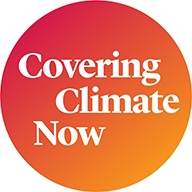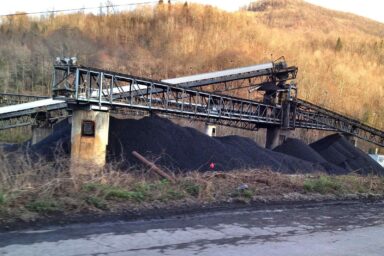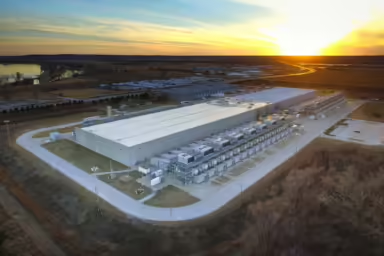Most Americans think climate change plays some role in creating extreme weather, though their perceptions didn’t always align with scientists’.
|
Listen To This Story
|
Attribution science aims to determine the extent to which climate change causes natural hazards and extreme weather such as hurricanes, wildfires, floods, and heat waves. But how comfortable is the public in making these connections?
Pretty comfortable, as it turns out. A new study published in Climatic Change shows that 83 percent of Americans have some confidence in attributing at least one type of extreme weather to climate change. However, the public’s views varied among hazards and didn’t always line up with scientists’ confidence. The results point out some important considerations for climate scientists looking to communicate their work to the public.
“The value of scientific contribution really lives or dies by how well it matches with public perception.”
The results are “encouraging,” said Charles Ogunbode, a psychologist at the University of Nottingham in the United Kingdom who was not involved in the new study. “The value of scientific contribution really lives or dies by how well it matches with public perception. And from the look of it, public [perception] is keeping up.”
Crediting Climate Change
In the new study, researchers surveyed 1,071 adults in the United States about their experiences with extreme weather and their confidence in attributing these types of events to climate change. They asked respondents about five hazards: extreme heat, extreme rainfall and flooding, hurricanes, wildfires, and tornadoes.
Respondents had the most confidence attributing wildfires and extreme heat to climate change, with 27.8 percent and 25.5 percent, respectively, saying they were “extremely confident” in the climate change link. Respondents were less confident about extreme rainfall and flooding, hurricanes, and tornadoes.
Only 17 percent of respondents reported “no confidence at all” for all event types. That’s evidence that many people have at least some level of understanding of climate change, said Chad Zanocco, a co-author on the study and a climate and energy policy researcher at Stanford University.
Public confidence in the relationship between climate change and extreme weather events varied by type.
Credit: Zanocco et al., 2024, https://doi.org/10.1007/s10584-024-03735-0, Grace van Deelen
Previous studies have shown that though most Americans (72 percent) think global warming is happening, 42 percent still aren’t confident that it is mostly human caused. (Scientists have agreed on the role of fossil fuel emissions in climate change for years.)
“It’s encouraging that people realize that the background climate is changing and that it’s affecting discrete individual events,” said Jennifer Marlon, a research scientist at Yale University’s Program on Climate Change Communication who was not involved in the new research. “But that doesn’t tell us anything about the ultimate cause in people’s minds.”
The public’s confidence in attributing events aligned with climate scientists’ understanding of how extreme weather and climate change are linked about 40 percent of the time, according to the researchers. The scientists’ views came from a 2016 report from the National Academies of Sciences, Engineering, and Medicine.
The public was least aligned with scientists when it came to wildfires and, on average, overattributed these events to climate change. That makes sense to Zanocco — though the public may see visceral images of Earth on fire and make a strong link to climate change, scientists tend to understand that the reasons for wildfires are highly complex, and climate change isn’t always the primary cause, he said.
Marlon agreed. Heat waves and wildfires tend to be more intuitively linked to climate change because they relate so closely to the concept of warming, whereas for flooding, hurricanes, and tornadoes, the connection to climate change is less intuitive for most people, she said.
Perception to Policy
“The public still has a lot of misperceptions about climate change,” Marlon said. And just because people attribute extreme weather events to climate change doesn’t mean they understand the causes behind it, she noted.
“It’s really, really important that people make those connections to climate change.”
Marlon recommended that science communicators include relevant scientific information about attribution to climate change when communicating about extreme weather and natural hazards to help the public connect the dots. Zanocco agreed. “The public is ready,” for more information about the connection, he said.
In general, higher public confidence in attributing extreme weather events to climate change increases the likelihood that the public will also support climate change mitigation policies and actions, Ogunbode said. It’s hard to have conversations about mitigating climate change, either in public discourse or in policymaking settings, if people can’t link the problem to the cause, he said. “It’s really, really important that people make those connections to climate change.”
“Broader, deeper public support is going to provide enabling conditions that give decisionmakers permission to act more boldly” on climate policy, Marlon said.
This story by Grace van Deelen was originally published by Eos Magazine and is part of Covering Climate Now, a global journalism collaboration strengthening coverage of the climate story.





